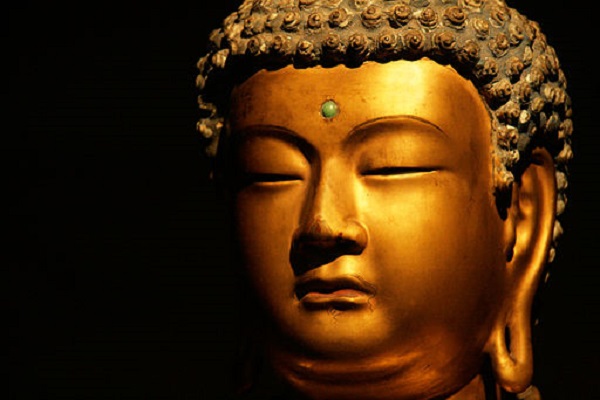
How Buddhism is Being Adapted for American Society
- By Kelly Frazier --
- 29 Apr 2016 --
![By mwibawa (Gouden Buddha) [CC BY-SA 2.0], via Wikimedia Commons](https://www.worldreligionnews.com/wp-content/uploads/2016/04/512px-WLANL_-_mwibawa_-_Gouden_Buddha_1.jpg)
Buddhism is thriving in the united States and developing into “American Buddhism.”
Buddhism has evolved over the years similar with all mainstream religions. It has branched out into several traditions and in almost every country where it exists, there’s a particular form of Buddhism being practiced. For instance, there’s Zen Buddhism which focuses on austerity and silence. There’s Theradva Buddhism wherein students try to master ancient texts. Pure Land Buddhism stresses on life virtues than rituals. And there’s Tibetan Buddhism which focuses on mindfulness and complex liturgy.
How Buddhism is Being Adapted for American Society[/tweetthis]
If there’s one place where Buddhism is perceived to thrive in the next few years, it’s in the United States. In fact, Buddhist teachers see that pure Tibetan Buddhism is evolving into what they call as “American Buddhism.” Buddhism in general is a hit in the US primarily because Westerners are “hungry for realization.” There’s an innate interest for Buddhist teachings. As what mindfulness teacher Chade-Meng Tan observes, Buddhism in the US is perceived to be “cool” and the dharma is “purer” compared to some Asian countries where the faith is widely practiced.
One specific area in Tibetan Buddhism that captured the attention of Americans is on its focus on death. Students can practice preparing death, especially those expecting to die alone. Kathy Wesley who is just one of the few Americans to fully become a lama explained that she fell in love in the Tibetan path because “It is so pragmatic and it also talks about dealing with your everyday mental afflictions. How to deal with your anger, how to deal with your sadness, how to deal with jealousy and competitiveness. Learning all of these techniques of meditation and putting them together, I feel is the richness of Tibetan Buddhism.” Wesley’s current goal is to adapt Tibetan Buddhist teaching for the Western culture.
Chade-Meng Tan’s corporate mindfulness
Chade-Meng Tan is a Buddhist that promotes the practice of mindfulness especially in the corporate setting or among the upper class in the United States. In an interview, Tan, who previously worked for Google, has clarified that more than the goal of increasing productivity, mindfulness should be directed at producing “better human beings who also happen to be more productive.”
Why did he choose to help the corporate world or the rich? First, he acknowledged that even privileged people are also suffering. Second and most importantly, the internal suffering of the people on top or those who control large businesses can also negatively impact all those who are connected with them. Additionally, changing the mindset of industry leaders in a positive manner can eventually change the country or the world. Tan consistently talks about kindness and compassion in his mindfulness teachings.
For Tan, Buddhists techniques like mindfulness can actually create the perfect conditions for world peace. He cites two essential achievements/pillars that should be present: the elimination of poverty and environmental destruction and the attainment of inner peace, joy and compassion. The Buddhist teacher explained why wealthy Western countries are still suffering. According to him, through these developed countries have already attained wealth, they still lack that inner peace, joy and compassion. On the other hand, places that enjoy inner peace, joy and compassion are still stricken by poverty and environmental destruction.
Tan finally noted that Buddhism is not a perfect religion just like other faiths. For him, Buddhism lacks the idea of “service” and consistent emphasis on “love” the way that Christianity does. But for him, mindfulness just like spirituality is a universal concept and practice that could bridge people from different worlds or beliefs. Mindfulness in itself can make an individual a better Christian, Muslim, Buddhist, Jew, etc.



















